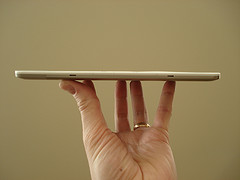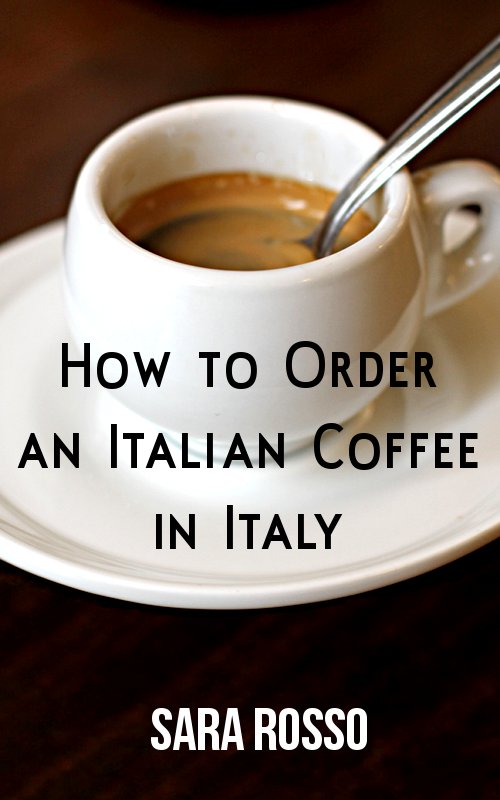 Today is the first part in the series A Guide to Ebooks series for Read an Ebook Week.
Today is the first part in the series A Guide to Ebooks series for Read an Ebook Week.
Part 1: What are ebooks? Advantages and Disadvantages of Electronic Books
- What are Ebooks : Electronic Books?
- Why aren’t Ebooks more popular? Tactile Loss and the eBabel problem
- ebooks are Great! Here’s Why : Advantages of ebooks
Part 2: How to Read an ebook: Formats, Devices, Dedicated Readers and iPhone Applications
- Ebook Formats
- How to Read an Ebook: Devices and Dedicated Ebook Readers
- Applications to Read Ebooks on the iPhone / iTouch
Part 3: Where to Buy and Find Free Ebooks, and Learning Resources
- Where to Find and Buy Ebooks
- Where to Find Free Ebooks
- Learning Resources
What are Ebooks : Electronic Books?
The official definition of an ebook is:
“ebook. noun a book composed in or converted to digital format for display on a computer screen or handheld device” – Merriam-Webster.com
“e-book. noun a book that is published in electronic form, for example on the Internet or on a disk, and not printed on paper” – Cambridge.org
At least two well-known spellings ebook and e-book and countless other versions (eBook, Ebook) exist but the term ebook now is often used when referring to the methodology of reading just about any mid-to-long-length electronic document that is viewable on a screen, including research papers, short stories and even magazines.
For the purposes of this guide we’re going to talk about ebooks in their pure version: the electronic equivalent of any book or novel formatted for on-screen reading.
Why aren’t ebooks more Popular? Tactile loss And the eBabel Problem
Why aren’t ebooks more popular? The arguments seem to fall into three categories:
- Tactile loss : I like the feel and smell of paper / I can’t read on a screen
- Lending loss : I want to lend my books to who I want
- Library loss : I want a library that will last forever
While the first two are considerable arguments, the tactile loss argument is probably the most obvious and passionate argument longtime readers have, but the least serious technologically. I also feel that it’s getting outweighed by the convenience factor and the fact that we are reading more and more material everyday on a screen.
We all remember the discussions when mp3s started becoming popular and people insisted “they’ll want the album notes – they’ll want the physical CD.” Then Apple came along and introduced the iTunes Store and multiple copycats followed so buying electronic music was even easier and became mass-market through support of major record labels.
The one big difference between the music and ebook markets is there is no “mp3” of ebooks – there is no universal ebook file format, what is often referred to as the “eBabel” problem, much like the Tower of Babel. So unlike when you bought .m4p files from Apple (their proprietary format), you could also load in mp3 files from other sources and create mp3s from your own CDs. Devices just had to read .mp3 and perhaps an additional proprietary format. With ebooks we’re still playing a format-device game and there will be no way to load in electronic versions of paper books you already own.
Lending loss is a problem that I feel less as I didn’t and don’t often exchange books with friends. In fact, I often re-read books I like so I appreciate keeping them in my library. But for other people, the fact that they can’t lend paper books to other friends, re-sell or even buy used books is a disadvantage. In some cases ebooks can be authorized for more than one device, so perhaps you and your best friend can still share books, but for now ebook sellers are determined to keep you from sharing your ebooks.
We’re in an exciting and ugly time for ebooks. There are so many formats, and each one is determined to succeed. Remember the VHS and Beta fight in the 1980s? Only one survived. This time, there are more than two major players so not only must the author and publisher decide which format(s) to publish in, and they rarely choose all formats available, now you as a consumer are forced to make a decision about where to get your content and which format to buy it in.
And what if you’re wrong? You could lose your library.
Underlying all of this is the major problem of DRM – Digital Rights Management, which I’ll talk more about when examining the ebook formats available. That’s a risk everyone is taking now buying formats that are tied to specific devices, or even a particular format in general. Almost all major books are being released with some DRM attached to them. Some format providers are seeing the benefit of being separate from a device, and are offering cross-compatibility on several devices.
Ebooks are Great! Here’s Why : Advantages of ebooks
So are there any advantages to ebooks? As I mentioned in my editorial announcement about this ebook guide, I love ebooks for several reasons: mobility, saving space, convenience, saving money and time, and ease-of-use. Here’s why:
Mobility
- Carry your entire library in your pocket: With disk space quickly becoming a commodity, and the size of portable device hard drives getting bigger and bigger, it’s conceivable to think that you could have your entire library with you and have it accessible to your fingertips.
- Backup a copy of your library with an online backup service: Backing up your entire library online or locally won’t require much space and it’s something that would be impossible with a physical library, and no more worries about fire-proofing your books.
Saving Physical Space
- Your Library is as Big as your Disk Drive: As a bit of a nomad, I’ve changed house several times in my life, and each time I’ve had to give away parts or all of my library. Your library can grow as big as the disk space you have available and will be relatively small compared to walls and walls of bookshelves. And, due to disk space becoming a commodity, it’s safe to say you’ll probably never run out of space to store your library in your lifetime.
Convenience
- Keep it? Throw it Away? It’s just Bits: Ever read a book you hated so much you wouldn’t even recommend it to your worst enemy? Now, you won’t have the guilt of having to give away or throw out that paper book you couldn’t finish. Keeping an electronic book will take up so little space you’re allowed a few mistakes, and hopefully it will allow you to experiment with different types of authors and genres.
- Your Next Book is just Moments Away: Bringing hundreds of books with you wherever you are means you never have to plan ahead for that long trip or even the bus ride across town. When you’ve finished one book, quickly browse your library and start another!
Saving Time & Money
- No Shipping Costs or Wait Time: This is a much easier argument for me to prove living as an expat with book prices being astronomical in a non-English speaking country. But, remember that when you eliminate the need for shipping that book to where you physically are, there will be some cost benefits.
- Save Gas, Save Time: Also, buying electronically will inevitably save you gas by not going to a physical bookstore, and time as from selection to purchase and reading an electronic book can be done in mere minutes.
Ease-of-Use
Not all ebook software is exactly the same, but many of them have similar settings and features that are common:
- Adjust Font Size for any Eyes: Adjust the font size, type and background color of your electronic book per your preferences.
- Add Notes, Bookmarks or Highlight: Instead of earmarking pages or marking up your paper copy, electronic copies allow you to add and delete bookmarks and notes at will and as many as you see fit.
- Searchable and Linkable Text: The text is searchable and can be hyperlinked, you can jump back-and-forth between chapters or the glossary.
Stay tuned for the next part in the Guide to ebooks series, How to Read an ebook: Formats, Devices, Dedicated Readers and Applications!
image by jblyberg
Categories: A Guide To, Ebooks



You didn’t really include any disadvantages .. just reasons why its not popular now. The advantages section was great though .. thanks .. but can you add a section on disadvantages
One of the great advantages of ebooks is that anyone can write and sell one themselves – anyone can become author and publisher in their own right. As a suggestion for follow up articles – you cover ‘reading’ ebooks, so why not cover writing and publishing your own ebook. I detail the publishing options on my site: Sell eBooks and Software Online
Congratualitons on the success of your latest book. That is great. I found this list throught Michelle Fabio at Bleeding Expresso. I just published my first ebook too, and it’s going great. It helps people get their blog started and growing FAST. Check it out if you’d like to.
Julie
At a bookstore or a library, I can examine a book before I decide to buy it or not. What is the e-book equivalent?
Jesse, Amazon for example lets you download a “Sample” of the book for free which can be from approximately 1-3 chapters of the book.
Hi, folks.
My husband (David Dvorkin) and I are both authors. We now have most of our 20 published books in ebook format via Smashwords.com and Amazon.com. On the same sites, you can find three wonderful books for children by Brian K. Nash; I am his editor. We all love this new format.
Smashwords lets you download 50% of each book to try before you buy. They also let authors set their own cover prices; almost all of our books are just $2.99 each. Smashwords pays 80% of the cover price in royalties four times a year, and Amazon pays 70% monthly. That compares VERY well with traditional publishers.
Publication on those two sites is free if you can do the rather technical formatting and your own cover design; David is a tech writer and programmer, so he had no trouble with that. He and I also offer editing and cover design services to other authors.
Brian Nash has been blind from birth, so David designed his covers, too. Brian also tells us that ebooks are quite blind-friendly, given that they can be read aloud by the machine.
So, with the low prices for the books, the ease of downloading, the ease of publication, the high royalties, the saving of paper, and many other advantages, I really do not see what there is to dislike here. To us, it is no wonder at all that ebooks are taking off like a rocket. They deserve no less. — Leonore H. Dvorkin, Denver, CO
I use Calibre. It switches other forms into mobi files and vice versa!
Is the term eBook a generic one? Can I use it in my promotion of a book I have on a USB?
Yes, it refers to an electronic book, not a paper book, so your digital book on an USB would be an ebook.